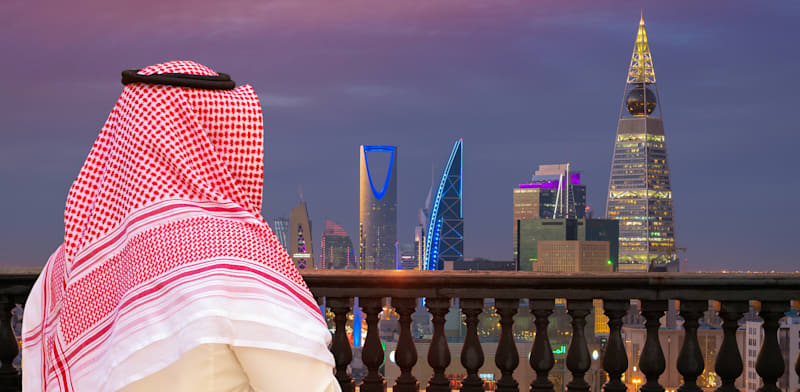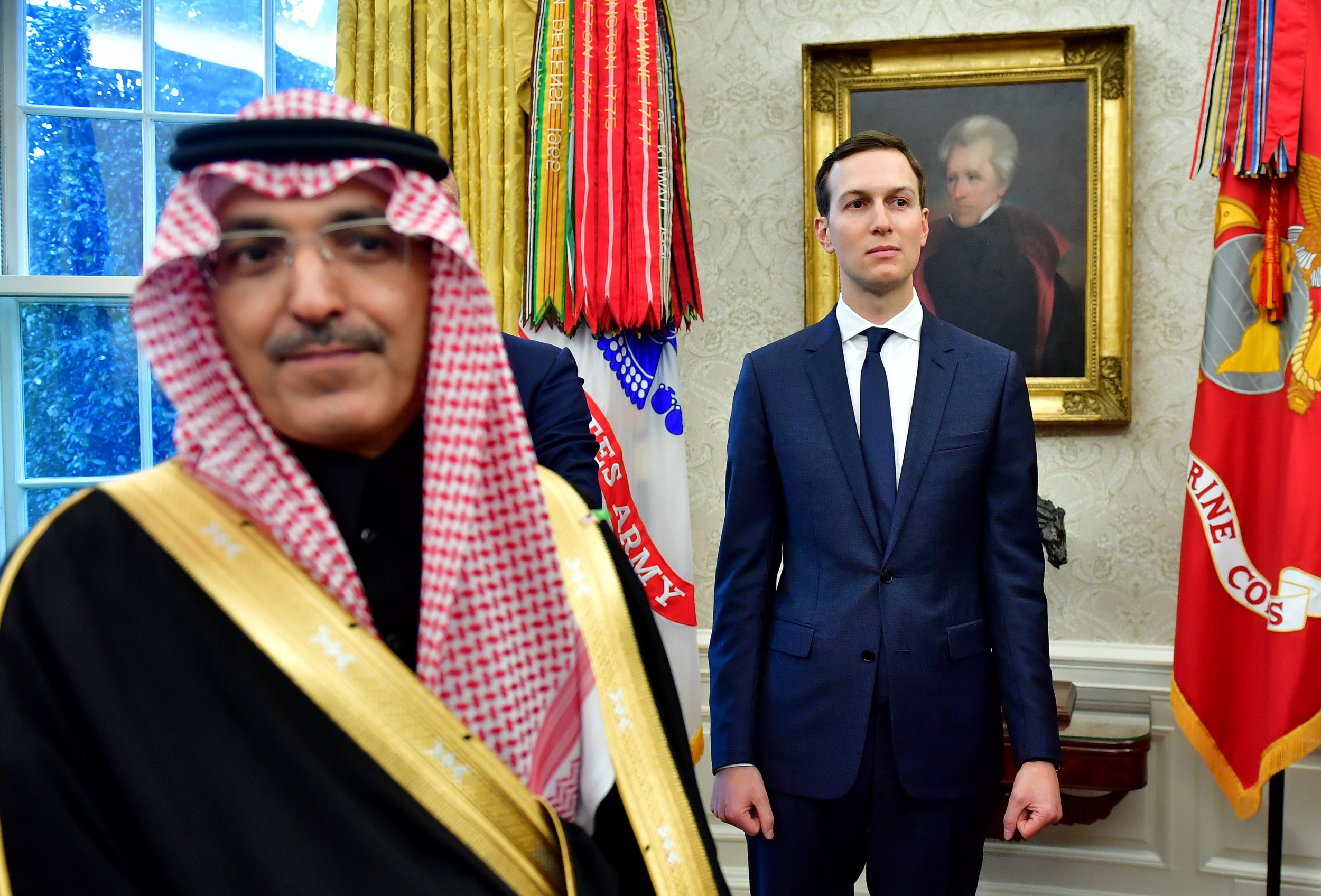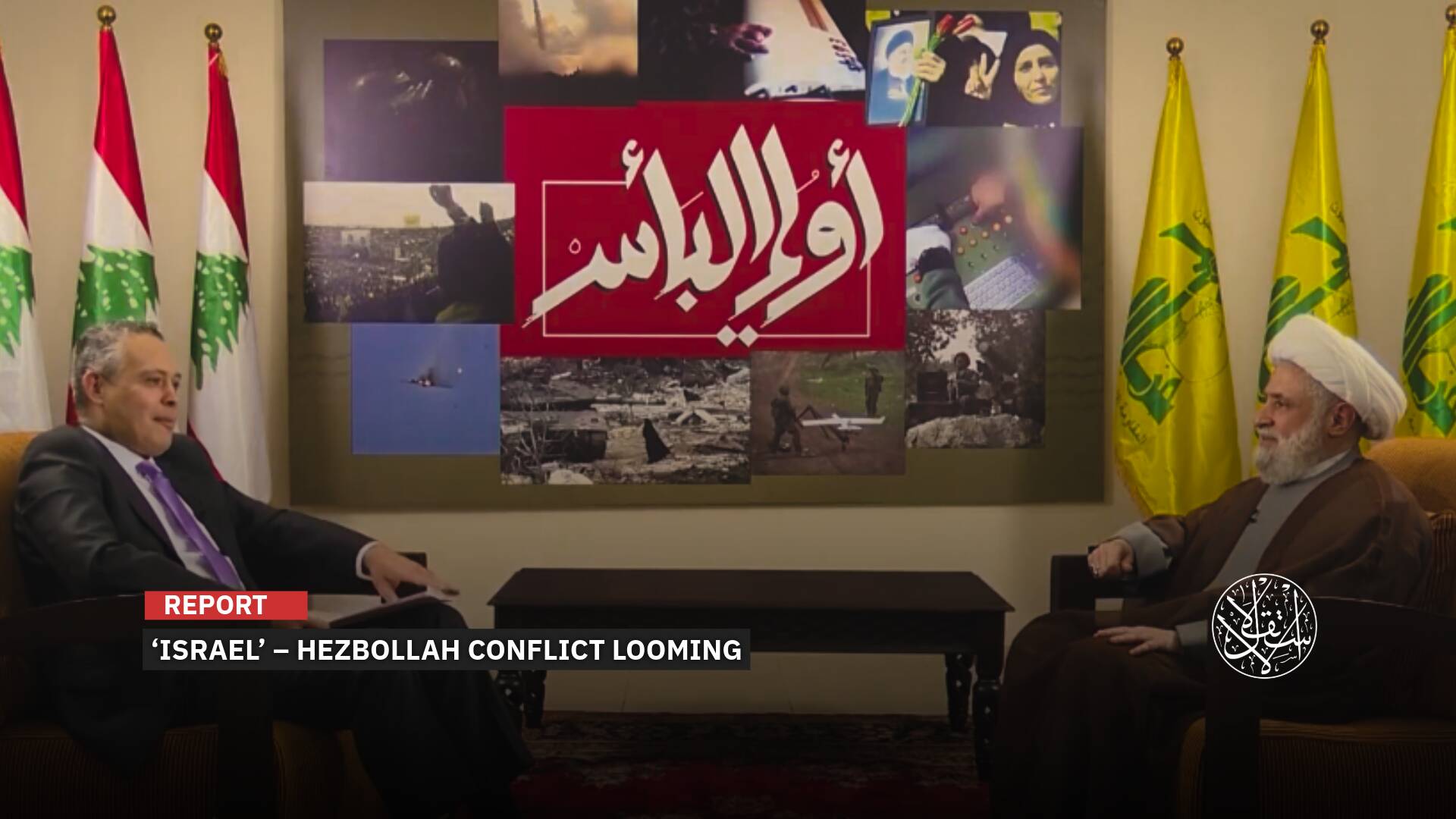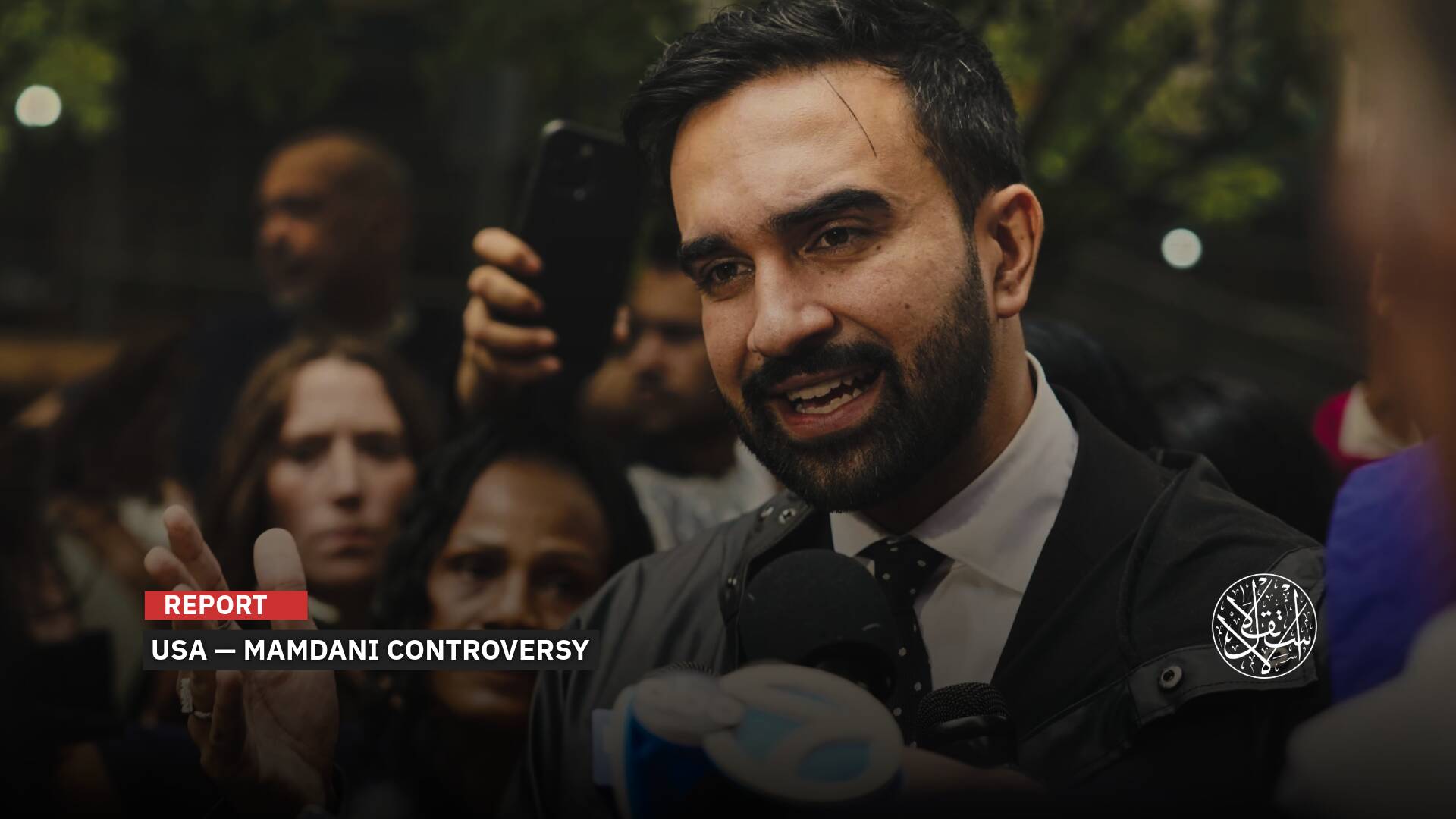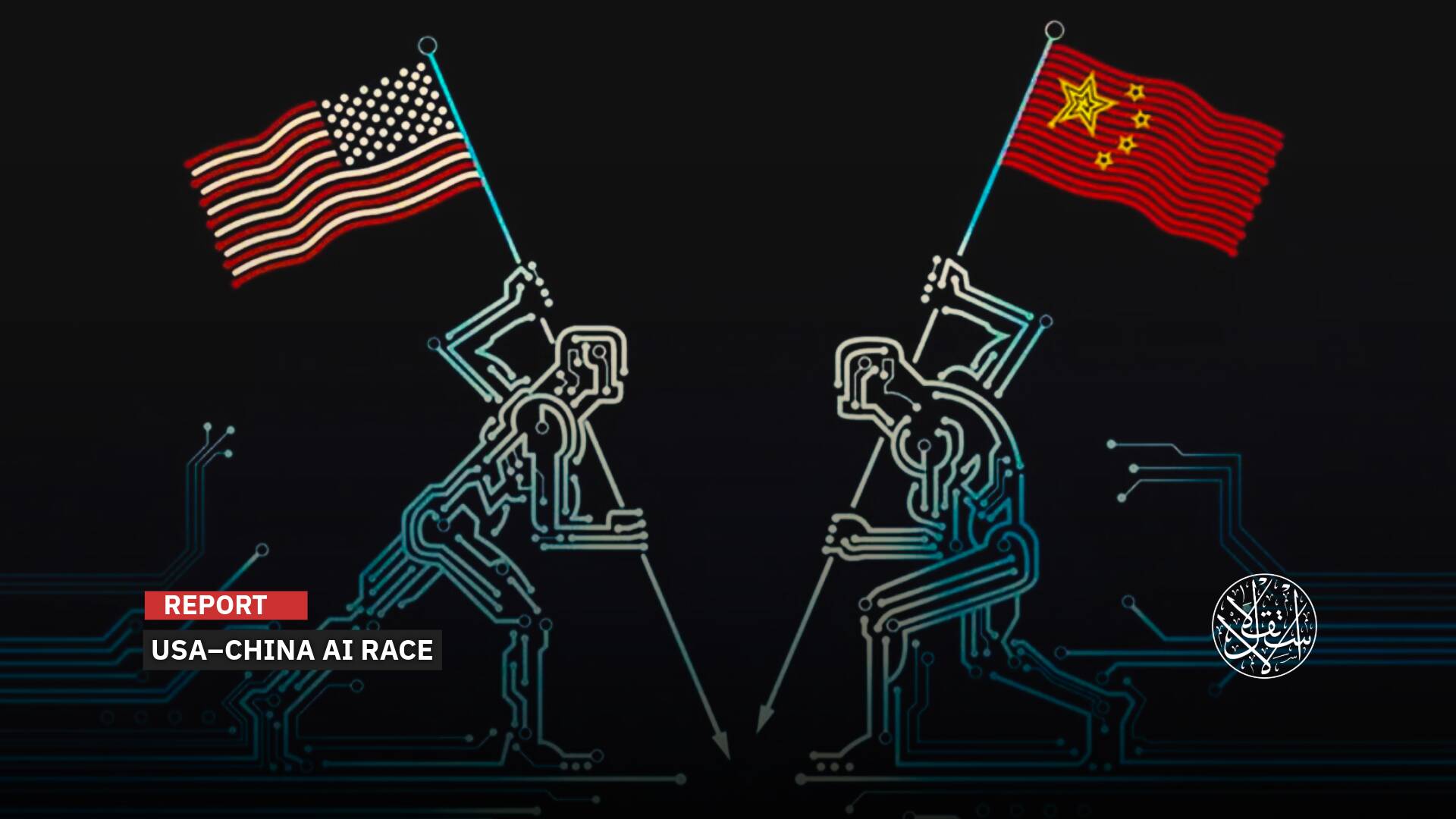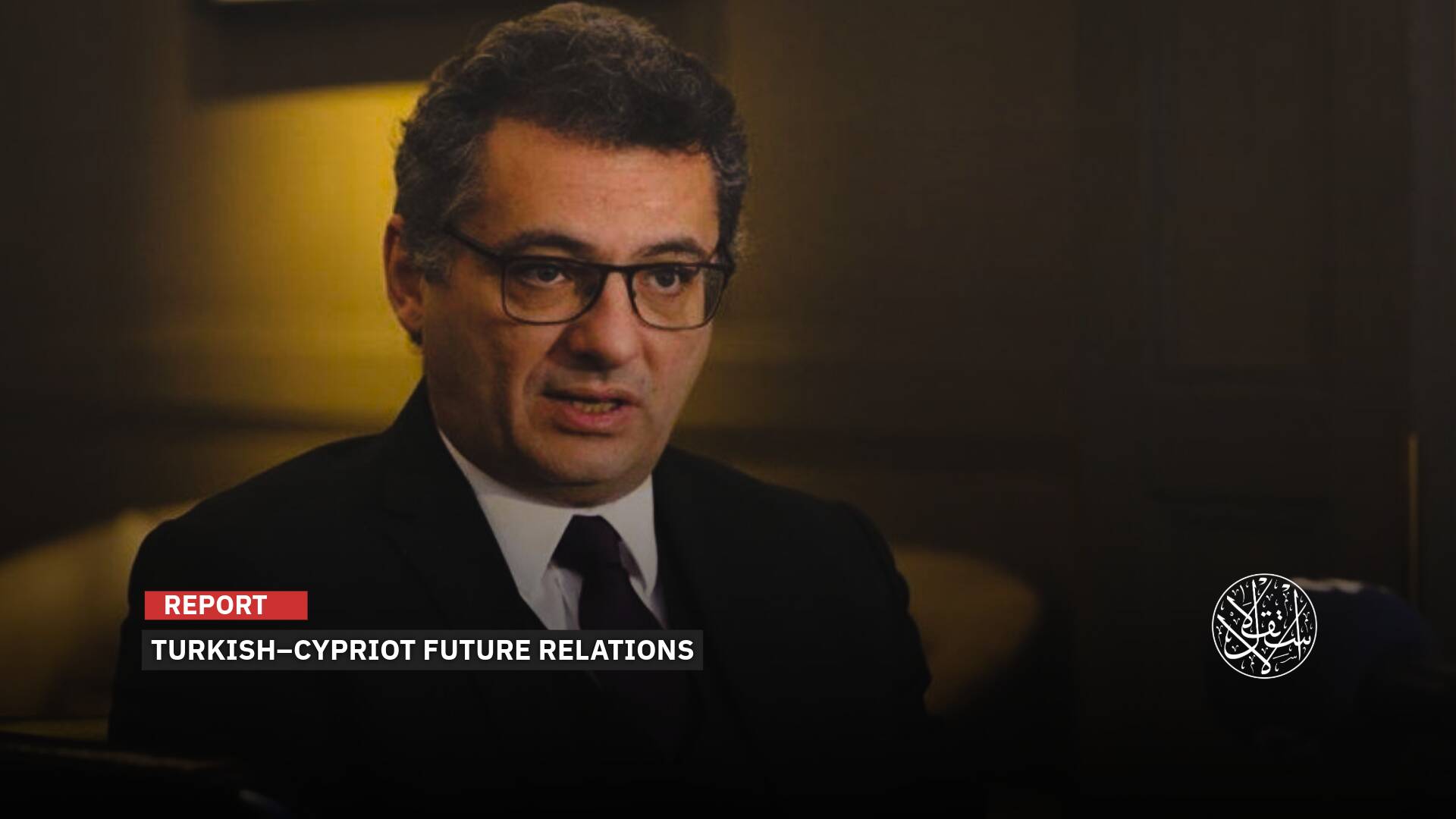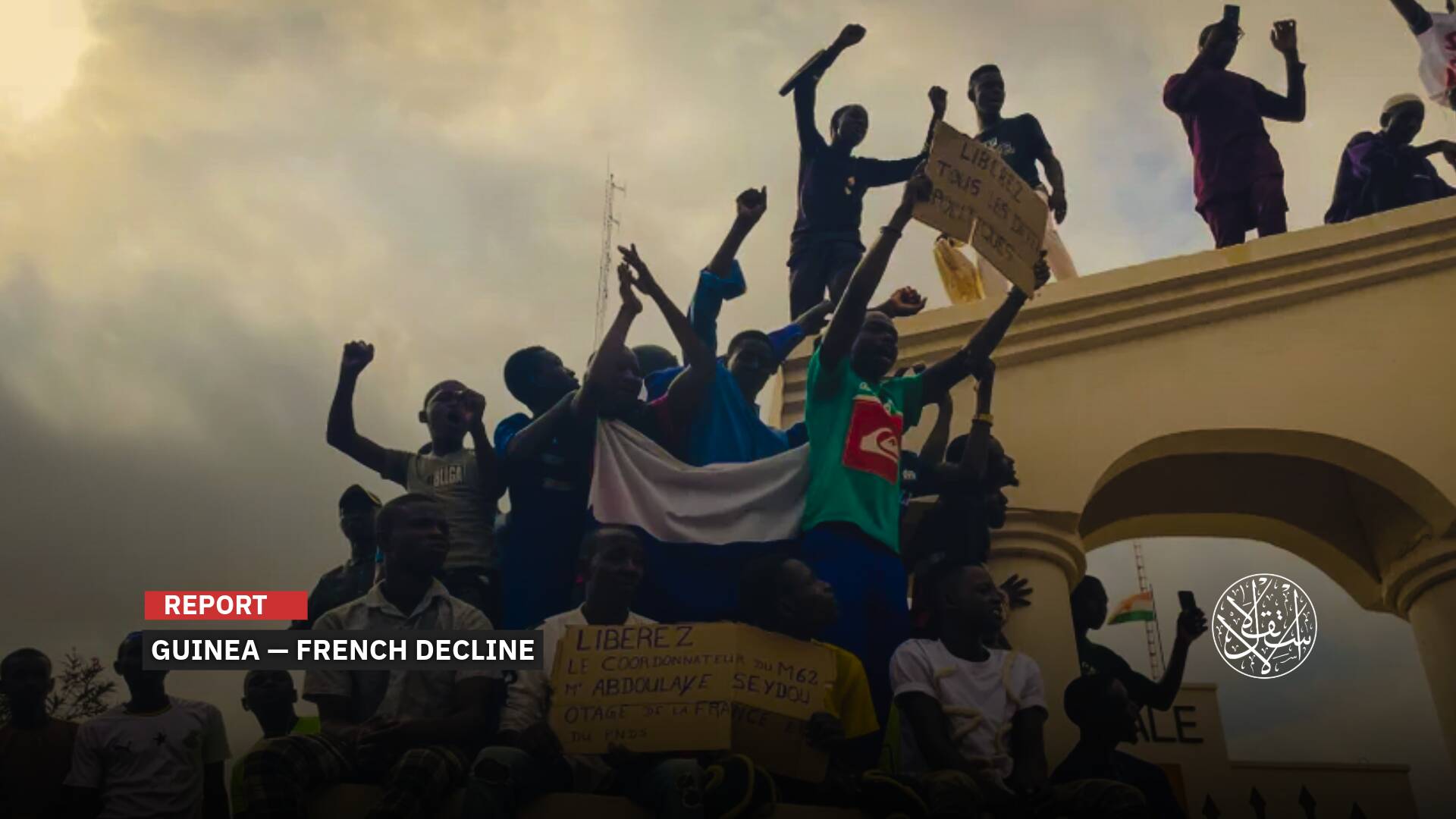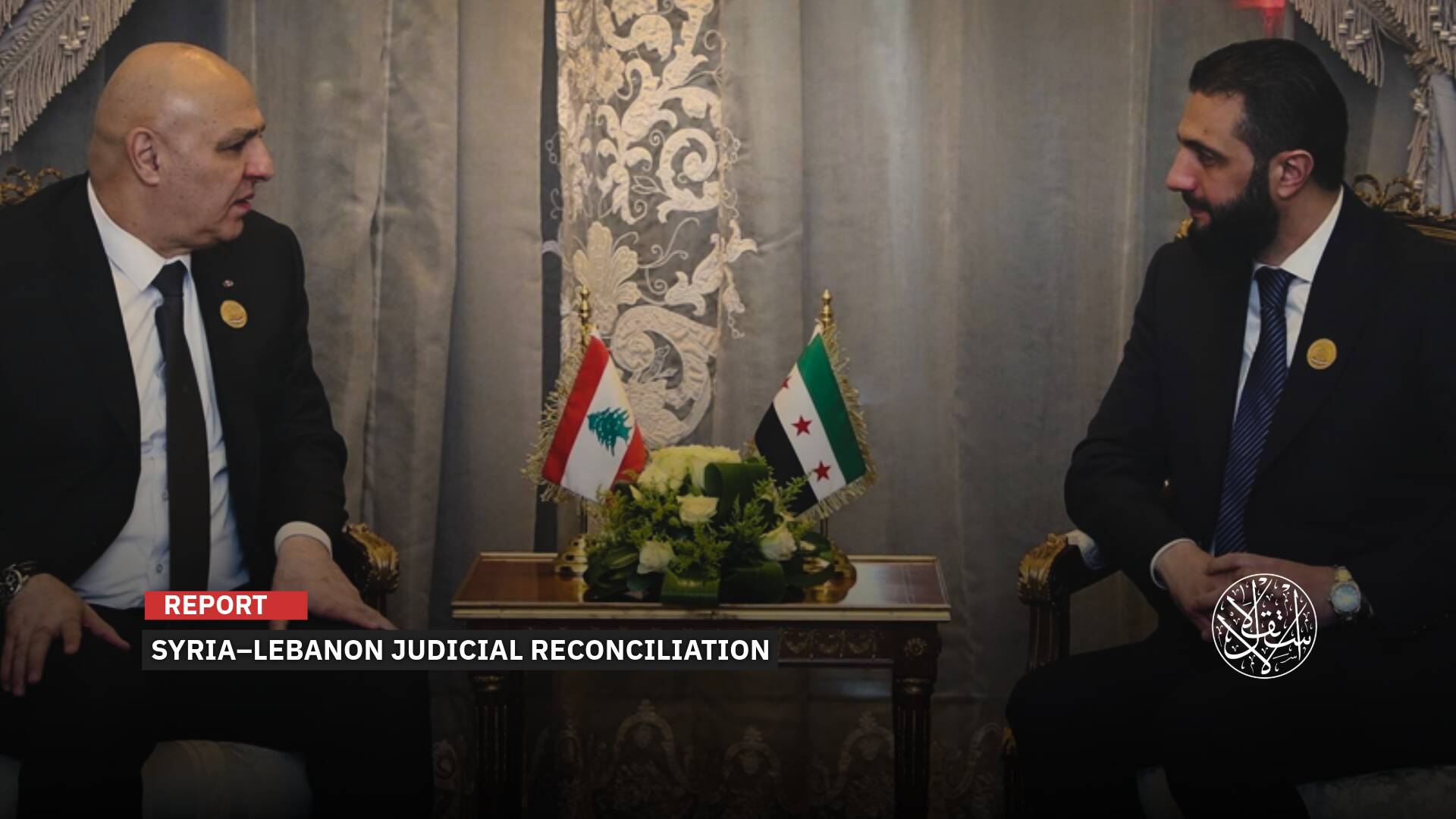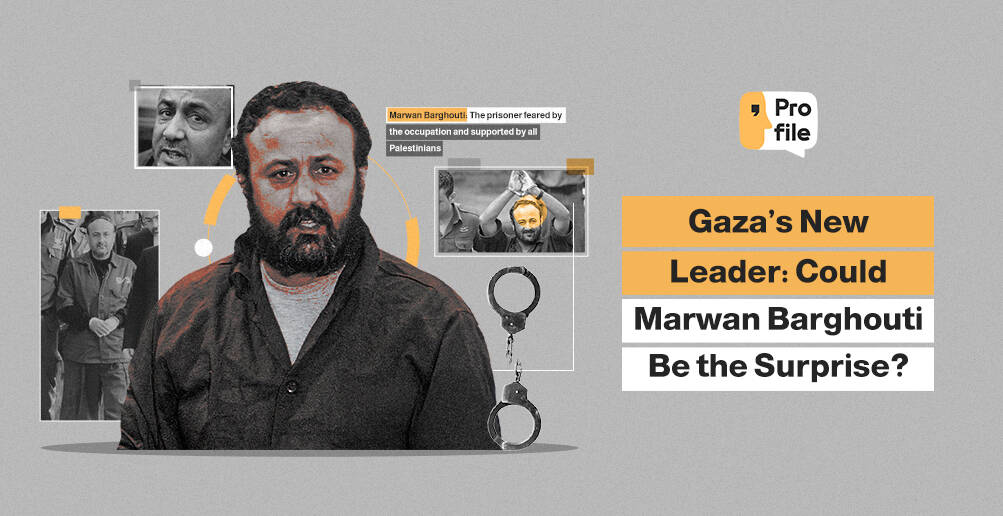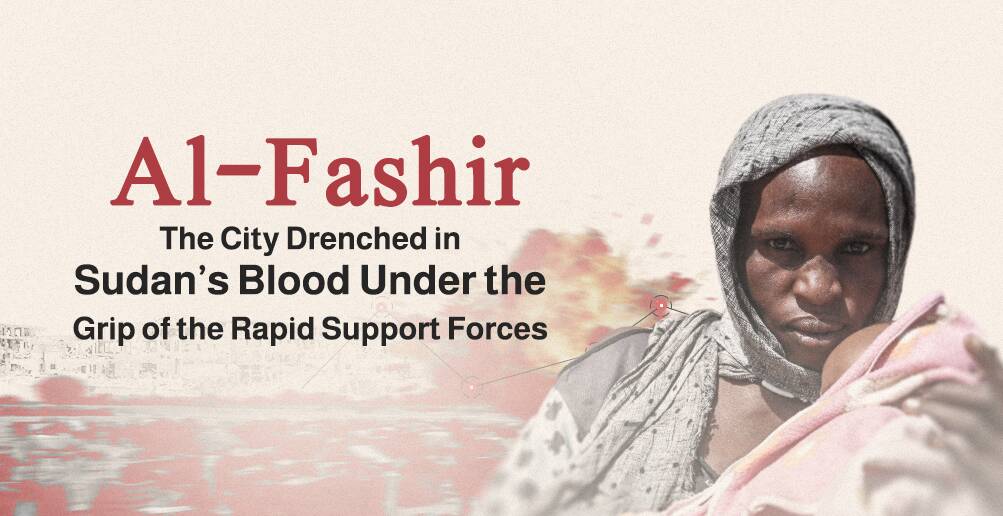How is Saudi Arabia Normalizing Economic Ties With ‘Israel’?
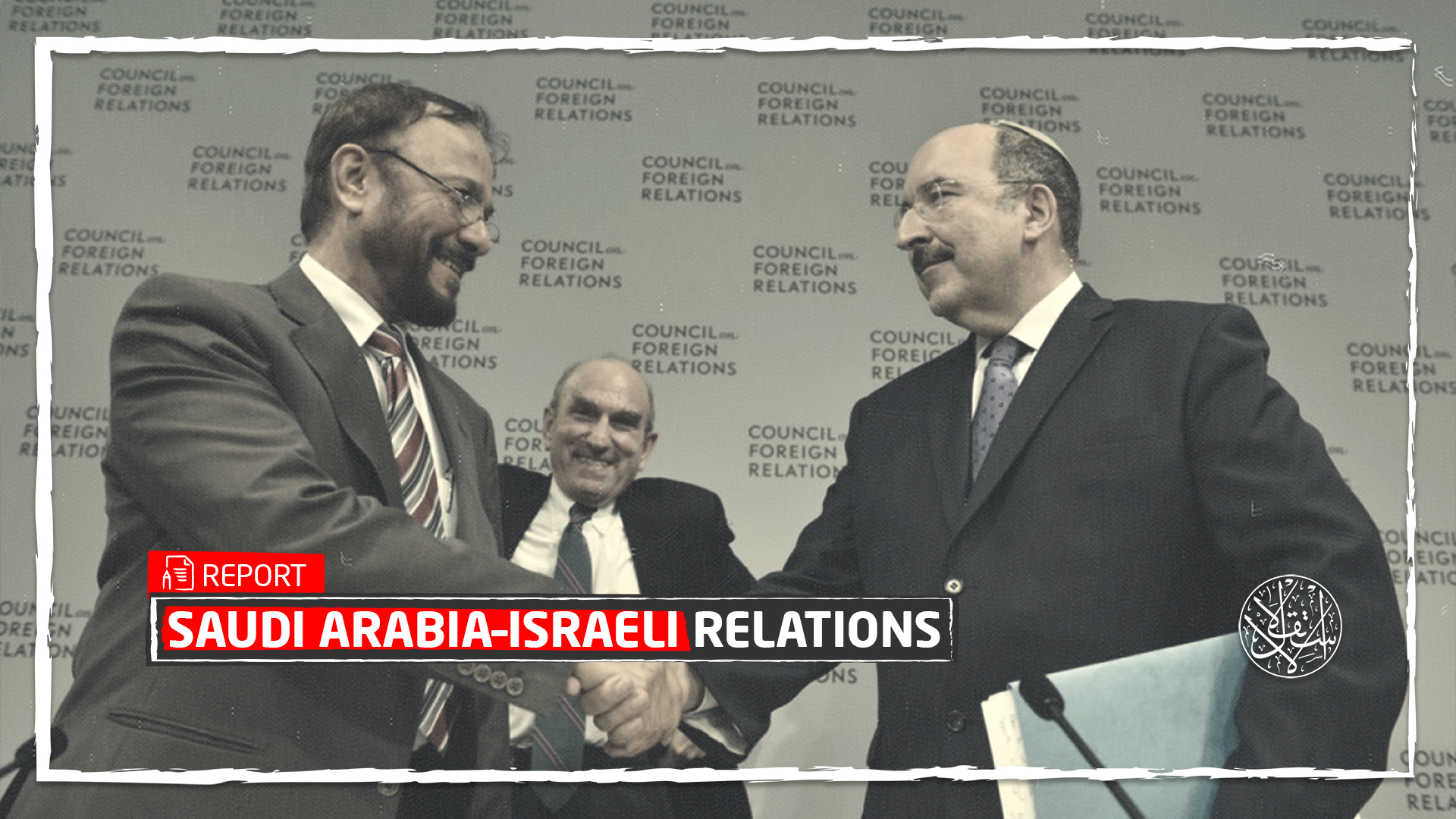
Israeli website Globes published a report on 26 May revealing that a strong wave of normalization is occurring between Saudi Arabia and “Israel” after decades of a cold relationship.
Dozens of Israeli businessmen recently visited Saudi Arabia with Israeli passports after Saudi Arabia lifted the ban on Israelis entering its territory in order to exploit the warmth in relations between the two parties in favor of economic agreements between them.
The United States mediates between “Israel,” Saudi Arabia, and Egypt for normalization, and the passage of the Tiran Islands and the Sanafir Islands to Saudi sovereignty, even if not officially announced, is reflected in huge deals signed during the visit of Israeli businessmen with Israeli passports to Saudi Arabia for investments between the two countries.
Traces of Normalization
Two months ago, Saudi Arabia allowed Israeli businessmen to enter its territory with Israeli passports.
Immediately, dozens of businessmen took advantage of this opportunity and visited Riyadh as well as other places in Saudi Arabia, such as Neom, where Netanyahu visited and met with Mohammed bin Salman (MBS), and also visited by U.S. Secretary Michael Pompeo.
These visits resulted in very large multi-million dollar deals in water technology produced by “Israel,” which is committed to the desert climate in Saudi Arabia, as well as Israeli agricultural technology techniques.
These techniques are closely monitored by the royal family, which aims to expand as part of efforts to achieve security and food independence.
These projects are of great importance throughout the Middle East, as they also demonstrate to other States in the region the Israeli ability to assist in some areas of interest, particularly for food-deficient countries.
Israeli businessmen involved in Saudi investment were not surprised, with one businessman saying in a statement with Globes: "Regardless of direct diplomatic contact (as well as direct bank transfers), we have everything we need between countries to maintain a business relationship, sign transactions, and transport goods and knowledge."
The Hebrew website also learned that additional deals have been signed in agriculture and the areas of civil technology, and in addition, there is a growing interest in investing in non-emerging areas, but in proven Israeli products.
According to the same sources, it is estimated that these transactions are close to signing and will precede institutional investments through the Wealth Fund.
"The interesting thing is that the private sector is moving rapidly on both sides; businessmen are not only interested in diplomatic issues, but when the personal meeting meets with interests, they advance," said Dr. Nirit Ofir, Director General of the Israel–GCC Joint Chamber of Commerce.
Sharing Oil
Another confirmation of Israeli activity in Saudi Arabia also comes from Riyadh, a senior Saudi official interested in the subject told Globes.
The source said that the number of applications from Saudi businessmen for visas for Israelis is increasing, and that interest and thirst for information about Israeli technologies are growing rapidly.
The source also noted that meetings between businessmen from both sides are taking place in Dubai and Abu Dhabi in the UAE as well as in Manama, Bahrain’s capital.
The Israeli government sees the potential for this activity, which is integrated into the major plans and reforms promoted by the Crown Prince of Saudi Arabia.
In the area of security and intelligence, relations between the two countries are important, mainly due to the common enemy; Iran, quite a few articles have referred to the sales of Israeli security systems to Saudi Arabia, and this common interest has created the necessary foundation for other regions, as well as the potential for greater Israeli geopolitical influence than in the past, illustrated by U.S. efforts to push “Israel” to help persuade Saudi Arabia to increase oil production due to a global shortage of oil and energy sources resulting from the Russian invasion of Ukraine.
But the Saudis—who have been disappointed by Americans several times in recent years—do not readily agree, and two of President Joe Biden's advisers arrived in Saudi Arabia this week to push the issue, and the talks, according to U.S. sources, will also raise the issue of strengthening economic relations and trade with “Israel.”
Saudis Blame Palestinians
Officially, Saudi Arabia is concerned about what is being published about relations with the Israeli occupation, where the Saudis insist that progress in relations with “Israel” will not only come after progress with the Palestinians, Saudi Foreign Minister Faisal bin Farhan reiterated this week.
"The integration of Israel into the region will be very useful not only for Israel itself, but for the entire region, but without addressing the fundamental problems of the Palestinian people and granting respect and sovereignty to the Palestinian people through the establishment of a state,” he said.
However, the Saudis are unofficially spreading on social media claims that blame Palestinians. Images of stones, Molotov cocktails, and other rudimentary weapons brought to the holy al-Aqsa Mosque by young Palestinians have sparked outrage in Saudi Arabia.
Diplomatic change toward the Israeli occupation is likely to occur only after the official transfer of power from King Salman to his son Mohammed, but economic change already exists, and the pace is accelerating.
Waiting for Kushner
The continuing confrontation between Saudi Arabia and Iran, both over the nuclear issue (especially during the 2015 nuclear deal) and the Yemeni civil war, has led to a further rapprochement between Saudi Arabia and “Israel” this time in the areas of security and intelligence
Globes said that there has been a significant acceleration in the civil sphere following the Abraham agreements signed by former Prime Minister Benjamin Netanyahu with Saudi neighbors: UAE and Bahrain.
The largely positive way in which Saudi public opinion has received this agreement, with its economic and other advantages, has paved the way for the expansion of these relations.
For example, the Saudis' tacit agreement was expressed that aircraft to and from the Israeli occupation could be allowed to cross Saudi territory, to the UAE, Bahrain, and the Far East.
An important step has been taken to highlight and normalize relations in recent weeks, with the Wall Street Journal reporting that the Saudis paid a $2 billion investment in a private equity fund set up by Jared Kushner, son-in-law of former President Donald Trump, a $3 billion fund dedicated to investing in Israeli companies in advanced technology.
This is not the first time Saudi Arabia has invested in Israeli companies: through an investment fund of another former Trump administration official, Steven Mnuchin, where Saudi Arabia invests in Israeli startups operating in the United States and signs agreements with the U.S. Department of Defense, in several areas including electronic communications and cyberspace, but investment in the Kushner Fund comes from Saudi wealth fund funds, with the direct approval of Mohammed bin Salman, crown prince, and man. strong in the kingdom.


